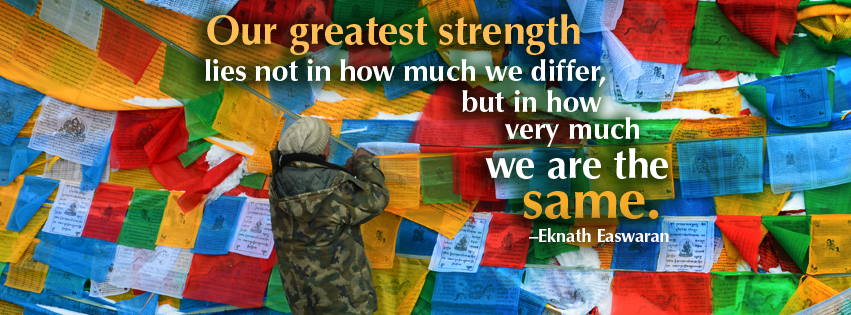
In my years working with teens and young adults nationally, regionally, and locally I have accumulated many facebook friends who are now young adults.
One of these friends was expressing her disappointment in receiving two B’s this semester where her previous grads had been all A’s. She had perspective; she understood that this wasn’t the end of the world, just that it was missing the goal she had made for herself.
I had a number of responses I could have said, but as her friends seemed to have it well in hand, I pondered something bigger.
That is expectations, doing our best, and peace of mind.
Some of us have had a lot of expectations put on us by parents/teachers/society/etc., and others have self-inflicted expectations. But why? We don’t have to say yes to these expectations, though often we don’t realize that until it’s become almost second nature. Getting straight A’s in college is a worthy goal, but the student making that goal may not realize what they are getting into. They may not realize that there are professors out there who grade on a curve or don’t believe in giving A’s. Or they may learn of a class that sounds really interesting but also know that it’s really hard. If they are committed to that 4.0 GPA, maybe they don’t take the class for fear of a less than A grade. I don’t think that’s what college or life is supposed to be about.
Once we realize that our expectations may not match with reality, what we can work with instead is doing our best. What is our best? It changes day to day. In my last Fall quarter of seminary my dad entered Hospice care. I rearranged the classes I could to give myself a lighter term, but some classes I had to take that quarter or not graduate on schedule. My best effort some of those days was not the caliber of my best effort of some other times in my school career. It didn’t matter, I was present to what I needed to be present to: my family, my feelings, and yes my school work.
When we allow our expectations to be more flexible and instead do our best, the result is peace of mind. I remember one of my classmates commenting how happy they were when they got their first B after earning all A’s for several terms. My friend said it took the pressure off, they no longer had the possibility of getting a perfect grade throughout school and now he could breathe. Not that they wouldn’t keep putting in all their effort, but that now they could do it with less stress.
This applies to so much more than schooling, I see people getting themselves all worked up trying to meet some illusorily and unattainable standard, when they would be so much happier allowing that their best was all they could do. In giving themselves permission to be right where they were would actually free up their energies to do better!
The desire for perfection is paralyzing. If I wanted to do everything in my work ‘perfect’ I would never get anything done. I would tweak the website endlessly without ever publishing the new version. I would have to edit and re-read every blog for days. I would obsess over each sermon. I would have to use a script to pray instead of taking a deep breath and just be-ing with whomever is before me. And don’t get me started in how many things I forget to put in the enews weekly! In giving myself permission to do my best I move forward learning from my mistakes and striving to incorporate them in future efforts. I have the peace of mind that not every thing is going to be perfect, but it’s going to be pretty good, and sometimes even great, and while we strive for excellence, there is always going to be another level to attain. (That’s why doctors and lawyers offices are called their ‘practice’.)
One of my dear classmates who was juggling in seminary at least as many things as I, always joked with me when things got stressful, “B’s get degrees.” Because sometimes a date with your spouse, a walk with a friend, or a nap is the best way to care for yourself and your life.
In short, have some fun along with the ‘tasks’ of life. You’re going to do fine, and you’ll have a lot more peace.
In Joy
Rev. Ra
PS I’ve never had anyone hiring care much about my GPA, experiences count so much more.
PPS My GPA was 3.7 in both undergrad and masters (not that anyone cares).


